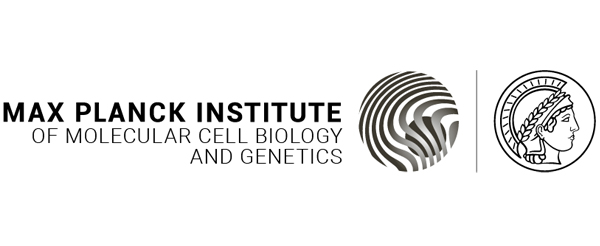Since its inception, the Max Planck Institute of Molecular Cell Biology and Genetics (MPI-CBG) has been driven by a central scientific question: how do individual cells organise to form tissues?
The common research principle of the groups at the MPI-CBG is to dissect fundamental cellular functions and identify their generalisability and uniqueness in development and evolution, resulting in diverse and distinct tissues and organisms.
Their research program spans scales from molecules to organisms and continuously evolves new angles that reflect the vibrant and evolving landscape comprising our research groups.
Research within the MPI-CBG also spans multiple disciplines from:
-
Molecular and cellular systems: Investigating the mechanisms that underpin cell behavior, both in living organisms and in reconstituted in vitro systems, to reveal how complex processes emerge from molecular interactions.
-
Physics of living systems: Combining experiments and theoretical biophysics to understand how chemical and mechanical forces drive self-organisation, structure, and form across scales.
-
Mathematics and artificial intelligence: Developing and applying new mathematical frameworks—including topological data analysis, computational algebra, and metric geometry—alongside artificial intelligence to extract meaning from complex datasets and link structure, dynamics, and function.
-
Organoids and organisms: Using classical animal models as well as engineered organoid systems grown ex vivo to probe the principles of development, regeneration, and disease, and to experimentally re-create tissue organisation outside the living body.
Collaborative culture and multidisciplinary approach
MPI-CBG pursues a multi-scale and multidisciplinary approach. Its research spans from molecules to entire organisms, and evolves continuously in response to new questions, methods, and technologies. This adaptability reflects the dynamic scientific culture at the institute, where researchers are encouraged to explore emerging angles and redefine their work as the broader field advances.
A distinctive collaborative culture matches this interdisciplinary breadth. At MPI-CBG, biologists, physicists, mathematicians, and computer scientists collaborate closely, integrating their expertise to address fundamental questions that transcend the scope of any single discipline. Strong institutional support structures and scientific core facilities further enable this collaborative research, ensuring that individual groups contribute not only their own discoveries but also to a shared intellectual ecosystem.
Today, MPI-CBG is home to around 500 scientists from over 50 countries, united by curiosity and driven by a commitment to pioneering basic research. Together, they embody the institute’s mission: to reveal the fundamental principles by which cells form tissues, and in doing so, to illuminate the logic of life itself.


